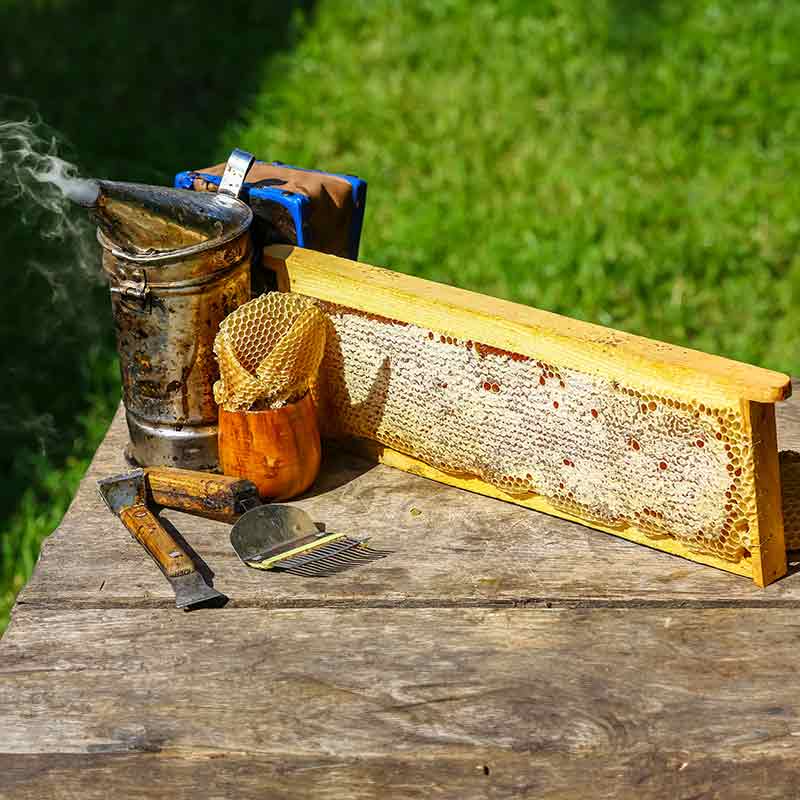Creating a bee-friendly garden can promote biodiversity and ensure a healthy ecosystem in your local area. With many native bee species and the well-known honeybee facing serious threats from habitat loss, pesticides and climate change, your garden can become a haven for these vital pollinators. This blog post will explore the concept of bee-friendly gardening and how you can transform your outdoor space into a bee sanctuary with flowers and plants that attract bees in Australia.
Choose Native Plants
Australian native plants are perfectly adapted to the local climate and soil conditions, making them an ideal choice for attracting native bees. Species such as Grevillea, Callistemon and Melaleuca provide abundant nectar and pollen. Additionally, bee friendly plants like the Kangaroo Paw and the Bluebell offer vibrant colours that are highly effective at attracting bees.
Plant a Variety of Flowers
Bees are attracted to a wide range of flowers, so incorporating bee attracting plants that bloom at different times of the year will ensure a continuous food supply. Aim for a mix of shapes, sizes and colours to cater to various bee species. Herbs such as basil, rosemary and lavender are also excellent flowers that attract bees and can be used in your kitchen as well.
Avoid Pesticides
Chemical pesticides can be harmful to bees, so it’s important to use organic gardening methods to manage pests. Encourage natural predators, use neem oil or introduce companion planting to keep your garden healthy without the need for harmful chemicals. If you must use pesticides, do so sparingly and opt for bee-friendly options, applying them at dusk when bees are less active.
Provide Water Sources
Bees need water for drinking and to cool their hives. Place shallow dishes of water with pebbles or twigs for the bees to land on in your garden. Change the water regularly to prevent it from becoming a breeding ground for mosquitoes.
Get Started Today
By following these guidelines, you can help support Australia’s bee populations and ensure that these essential pollinators continue to thrive. Contact Buzzbee today to learn more about bee-friendly gardening, including the best flowers for bees and more.

